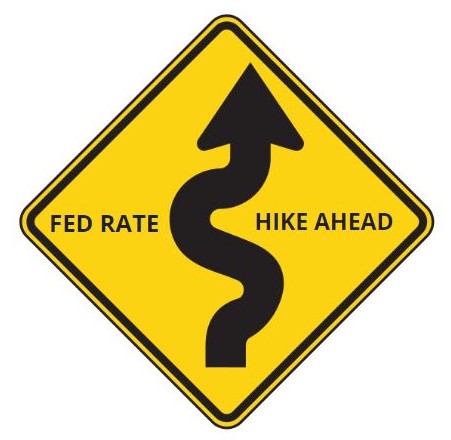Historic Fed Rate Hike

You may have seen that the Federal Reserve raised interest rates by 0.75% on Wednesday, June 15, in an aggressive move to stifle inflation’s impact. The decision marks the most significant rate increase in a single meeting of the Federal Reserve since 1994 and left many with their jaws on the ground.
In light of the Fed’s decision, we thought it would be timely to share how the hike may impact you this summer and fall — especially if you have financial goals you’re looking to accomplish before the end of the year. Remember we are here to help, and we are happy to discuss your financial goals to make sure you are still following your plan and not letting emotions or headlines change the course. Below are three ways we think you may feel the impact.
- Borrowers: Borrowing costs will continue to increase[i]. That means it will cost more this summer and fall for home equity lines of credit, credit cards, student loans, car loans, and mortgages. The Fed’s previous rate hikes this year have already hit prospective homeowners hard. The rate for a 30-year fixed-rate mortgage averaged 23% in the week ending June 9[ii]— up from under 3% this time a year ago. Business loans will also get more expensive for companies large and small. We work with clients to advise them in times like this and would be happy to talk if you are feeling the increase this way.
- Investors: Typically, when interest rates go up, the stock market goes down[iii]in the short term, though that is not a certainty. The Federal Reserve actions’ full impact on the stock market will largely depend[iv] on how fast the Fed raises interest rates from here and how businesses and the economy perform going forward. Whether Fed rate hikes will send the U.S. economy into a recession is unclear at the moment, but it will likely slow the economy at the very least. During this time, it will be important for investors to keep the long-term game in mind and avoid emotional decisions[v], which often lead to poor financial outcomes.
- Savers: The “sliver of a silver lining[vi]” will be for savers with cash in savings accounts, money market accounts, or CDs. Having earned almost nothing for years, cash savers may finally see a little interest hit their accounts once again. It’s important to note that even after several rate hikes, savings rates will still be meager — below inflation and the expected stock market returns.
If you are concerned about rising rates and their impact on your financial health, reach out to us today. We can review where you are, where you want to be, and how you can get there despite volatile market conditions. Together, we may even be able to make small changes that will soften the impact of the Fed’s rate hike.
[i] Egan, M. (2022, June 16). Cbsnews.com. What the interest rate hike means for you. [Online] Available at: What the interest rate hike means for you – CBS Boston (cbsnews.com)
[ii] Bahney, A. (2022, June 9). Cnn.com. Mortgage rates jump, jacking up monthly payments for new buyers. [Online] Available at: What the interest rate hike means for you – CBS Boston (cbsnews.com)
[iii] Hall, M. (2022, May 17). Investopedia.com. How Do Interest Rates Affect the Stock Market? [Online] Available at: What the interest rate hike means for you – CBS Boston (cbsnews.com)
[iv] Egan, M. (2022, June 16). Cnn.com. What the Fed rate hike means for you. [Online] Available at: What the interest rate hike means for you – CBS Boston (cbsnews.com)
[v] Zucchi, K. (2022, May 12). Investopedia.com. How Avoid Emotional Investing. [Online] Available at: What the interest rate hike means for you – CBS Boston (cbsnews.com)
[vi] Little, K. (2022, June 15). Time.com. The Latest Fed Rate Hike Is the Largest in 28 Years. Here’s the Silver Lining for Savers. [Online] Available at: What the interest rate hike means for you – CBS Boston (cbsnews.com)




